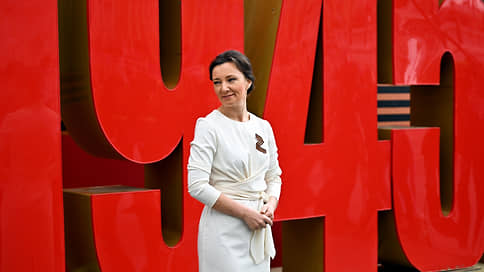Spiritual and moral monitoring – Newspaper Kommersant No. 28 (7473) of 02/15/2023
[ad_1]

On Tuesday, the State Duma hosted a meeting of an inter-factional working group on the legislative implementation of state policy in the field of preserving and strengthening traditional Russian spiritual and moral values. The list of the latter is fixed by presidential decree. The members of the group shared responsibilities among themselves and discussed who would evaluate which bills for their compliance with accepted values. But whether their expertise will really influence the legislative work of the Duma is still unclear.
The decision to create the group was made by the Council of the Duma on January 18: Vice Speaker Anna Kuznetsova (United Russia) took the initiative, and she also headed the new structure. At the meeting on February 14 (the first after the organizational one), the main areas of work were divided between her deputies. Nikolay Burlyaev (“A Just Russia — For Truth”) will be engaged in the implementation of state policy to support projects in the field of culture and education, Olga Korobova (“United Russia”) will prevent and suppress illegal actions aimed at spreading destructive ideology, head of the committee on issues family Nina Ostanina (KPRF) – policy in the field of upbringing and education of children and youth, Dmitry Pevtsov (“New People”) – preventing the spread of destructive ideology in the information space, vice-speaker from the Liberal Democratic Party Boris Chernyshov – protecting historical truth and countering the falsification of history.
The members of the group also committed themselves to monitoring bills submitted to the Duma and draft regulatory legal acts of federal executive bodies and assessing them for compliance. presidential decree “On approval of the foundations of the state policy for the preservation and strengthening of traditional Russian spiritual and moral values” (signed in November 2022). Spheres are also divided among the members of the group, for example, Elena Drapeko and Alexander Sholokhov will monitor projects in the field of culture, Tatyana Butskaya – on family and children, Yana Lantratova – on education, Oleg Nilov will monitor the strengthening of traditional values in agrarian issues, and Anatoly Greshnevikov – in environmental matters. Mr. Nilov told Kommersant that he was not present at the meeting of the group on Tuesday, but “each bill is not going to be checked for compliance” with values, since “it is impossible.”
Members of the group will be required to inform the chairman of the group in writing of bills requiring evaluation no later than three days from the date of their submission.
In addition, before the end of the first quarter, they will have to organize meetings in the relevant Duma committees with the participation of government representatives to audit the current legislation for its compliance with the presidential decree. Anna Kuznetsova herself will also send a request to the Ministry of Justice to monitor law enforcement practice in the field of preserving and strengthening traditional Russian spiritual and moral values.
Regarding the influence of the group on the work of the Duma as a whole, its position only says that its representatives will submit proposals to the committees on holding parliamentary hearings and round tables. However, Mrs. Lantratova assumes that the group’s expertise will also be taken into account when adopting bills, because the new structure was created by a decision of the Duma Council.
The working group took on a great organizational burden, given the wave of legislative initiatives that goes through the State Duma, said Pavel Sklyanchuk, a member of the political technologies committee of the RASO.
In addition, he says, it is not clear what the consequences will be if a bill is found to be inconsistent with a presidential decree, or if someone in the group misses some legal sedition. The expert notes that in this case the Duma is actually engaged in the implementation of presidential decrees, which are not directly addressed to it. Thus, the deputies are trying to increase their political effectiveness in order to, in turn, gain additional political confidence in their future, Mr. Sklyanchuk suggests.
[ad_2]
Source link








